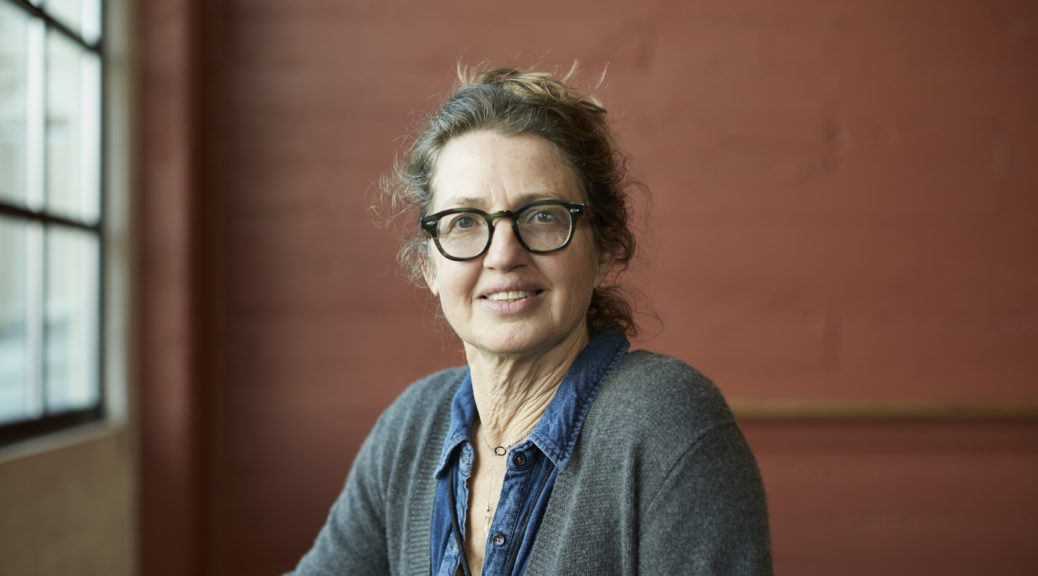
DANCE MADNESS AT THE SYMPHONY
BERKELEY—The symphony crowd missed an evocative evening at the Berkeley Symphony that was offering two important mid-career composers, a mad, mad dance program, a foray to British creativity and a fast-rising guest conductor.
But the rafts of empty seats in Zellerbach Hall suggested that it was all a bit too far off the beaten track, even for an orchestra as innovative as Berkeley. Having less than average advance media coverage didn’t help either.
Covering the pit with a dance surface enabled an octet of ODC dancers to come downstage in front of the orchestra and to unfurl new creations by Choreographer K.T. Nelson. The hit of the night by far was the contorted half-naked bunch straight out of Bedlam for Thomas Adès’ dances from his comic opera “Powder Her Face.” The bizarre group—twisting, writhing, groping erratically, and pairing up with various genders—was totally in sync with the grotesque farce that is the Englishman Adès’ opera, wherein even the orchestra appears to go bonkers. That zany opera was inspired by the scandalous real-life sexual excesses detailed in an English divorce court years ago.
These excerpts—or, more aptly, excesserpts—are outrageous and raucous, but always with a comic base, which Nelson built on skillfully. First a tango goes awry, then a waltz stumbles out of Vienna en route to some asylum. Nelson’s eight dancers (capped by the rangy James Gilmer) are equally ill-behaved, with one dancer bent on seducing conductor Christian Reif, working hard to maintain his composure. It’s the funniest 10 minutes of stage cutups seen all season—at the Symphony, of all places!
The Berkeley Symphony’s composer-in-residence Anna Clyne presented her “Midnight Hour” and proved, as usual, harder to define. It creates a stasis mood piece of low-register rumblings, strong drum beats, and rich large-orchestra sonic revels devoid of clearly delineated themes. Clyne was inspired by two poems, leading to the journey of a mad woman and a veiled melancholy waltz.
Clyne, 39, is inventive and endowed with great skill at orchestration, making for very pleasant listening. Our only cavil is that her works rarely show a personality distinct from one another.
The English composer did attempt two innovations that proved hardly audible: retuned strings to simulate accordion sounds, and splitting the brass on stage to gain a stereo effect.
The tall German-born Reif, who is on the conducting staff of the S.F. Symphony, is clearly a thirtyish conductor on the way up, brimming with an engaging manner, natural moves and self-confidence, smiling from start to finish. He led a beautiful Carmen Suite No. 1 by Bizet, with oboe soloist Deborah Shidler. But the Berkeley Symphony let him down on his “home-turf” selection—-Richard Strauss’ “Rosenkavalier” Suite, which was rough-shod and in need of another rehearsal. That was a pity, as very few of the Northern California orchestras perform much R. Strauss, whether those great tone poems or otherwise (their motivations being most likely political, not musical).
With that said, laudable solos came from trumpeter Scott Macomber, and other riffs from clarinet and bassoon. You can hear it all on the radio rebroadcast KALW-FM 91.7 at 9 PM May 27.
SUB FOR A SUB—This marked the end of the BSO’s season as well as Clyne’s three-year tenure here. The orchestra returns in fall under the amazing new music director, Joseph Young, selected even though this year on the podium he was a late-hour substitute for a substitute, thus bucking immense odds to garner the post.
Berkeley Symphony under guest Christian Reif playing Adès, Clyne, Bizet, R. Strauss at Zellerbach Hall, Berkeley. For BSO info: (510) 841-2800, or go online.